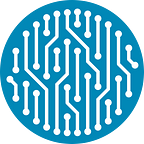Blockchain and artificial intelligence (AI) are without a doubt some of the most exciting technologies of the 21st century. Field experts are often looking at the convergence of the two as the catalyst to unlocking more innovation and use cases for both blockchain and artificial intelligence.
For those of you who are new to the tech space, AI employs data, computers, and machines, to replicate the problem-solving and decision-making capacity of the human mind. AI relies on machine learning to mimic the learning capabilities of humans, used to train AI to automate different processes and predict the outcomes of complex scenarios.
Blockchain, the underlying technology behind cryptocurrencies like Bitcoin and Ethereum, is a decentralized, immutable ledger, which is transparently shared across thousands of network participants simultaneously. Since every participant has an encrypted copy of the ledger, it’s nearly impossible to manipulate it — offering users trust in the on-chain data.
Now that we have a basic understanding of both blockchain and AI, let’s take a look at how these disruptive technologies can mutually enhance one another.
Use Cases at the Intersection of Blockchain and AI
Combining blockchain with artificial intelligence highlights the combined value of these two technological innovations, unlocking advanced new use cases with real-world impact. By leveraging blockchain-based data environments, AI protocols can be sure of the authenticity and reliability of the data, while also benefiting from the tamper-proof security of the blockchain ledger.
Blockchain networks, on the other hand, can significantly benefit from AI’s capacity to analyze, verify, and authenticate large sets of data with near-instant speed. Recording the decisions of AI protocols on the blockchain will also make the auditing process more transparent and efficient.
While these are just two basic illustrative examples of how blockchain and AI fit together, we’ll analyze 3 industries that would immediately stand to benefit, from the synergistic use cases of these technologies:
1.Healthcare
Data is at the core of the healthcare sector, so it’s no surprise that it’s one of the industries that stand to benefit the most from blockchain and AI.
Storing patient data on the blockchain ledger would offer patients a more secure and privacy-preserving environment, where people decide who gets to look at their personal files. This new digital health record would also enable researchers and healthcare providers to gain better knowledge of their patients while preserving their personal information.
Applying AI to these ledgers would help healthcare providers analyze the patient data and gain more reliable insights, while AI could also produce predictive models on each patient’s health patterns. This could lead to better-personalized healthcare, faster emergency response times, and better crisis management.
At the end of 2020, the Healthcare Collaborative partnered with IBM to develop a blockchain-based solution to create an accurate digital record for over 9 million individuals in their network — used to help navigate the Covid-19 pandemic and offer higher quality healthcare.
2.Supply Chain
Since supply chains are complicated networks with a multitude of different intermediaries and points of friction, their processes can be streamlined, automatized, and made more transparent via blockchain and AI.
The supply chain is still a largely paper-based process in some sectors. Using the blockchain to track the supply chain would make the data more trustworthy, reliable, and transparent. It would also create a decentralized, tamper-proof copy for all the global participants, enabling on-demand, real-time reports to improve product traceability.
Adding AI into the mix could help create a more time and cost-efficient supply chain, thanks to having better insights. AI can also help you understand the end-to-end production status and improve the procurement process. Automating complex repetitive tasks, like payments and purchases, could also become a possibility with the synergetic use of AI and smart contracts.
3. Translation
The translation industry also stands to benefit from the combined power of blockchain and AI. While machine translations have been advancing the industry, AI-enabled deep learning is making translation engines more accurate — helping them create more natural translations.
For instance, AIWORK employs the synergistic value of these technologies to offer an open marketplace for AI-powered machine translations and transcriptions. Since AI translations aren’t yet completely reliable, AIWORK leverages a community of human experts and blockchain consensus to verify and validate the data provided by the AI.
Thanks to employing blockchain and AI, AIWORK’s community of human experts can deliver higher quality, AI-generated video metadata with more efficiency and accuracy.
The Combined Value of Blockchain and AI
In summary, blockchain brings trust, security, and reliability to data — which is one of the most important elements for any AI application. In a way, AI systems feed on data, using it in the deep learning process to become smarter machines. This is what makes AI capable of automating human tasks.
So AI needs these censorship-resistant, on-chain data environments to rely on, as tamper-proof mediums it can use to evolve and create predictive models. As for blockchain networks, AI brings a new dimension of intelligence, which can be used by businesses to gain more actionable insights and improve data usage.
Despite having come a long way, both blockchain and AI are in their infancy. As these emerging technologies develop, bridging them will create more efficiency, trust, and transparency across industries, unlocking valuable new insights for companies.
